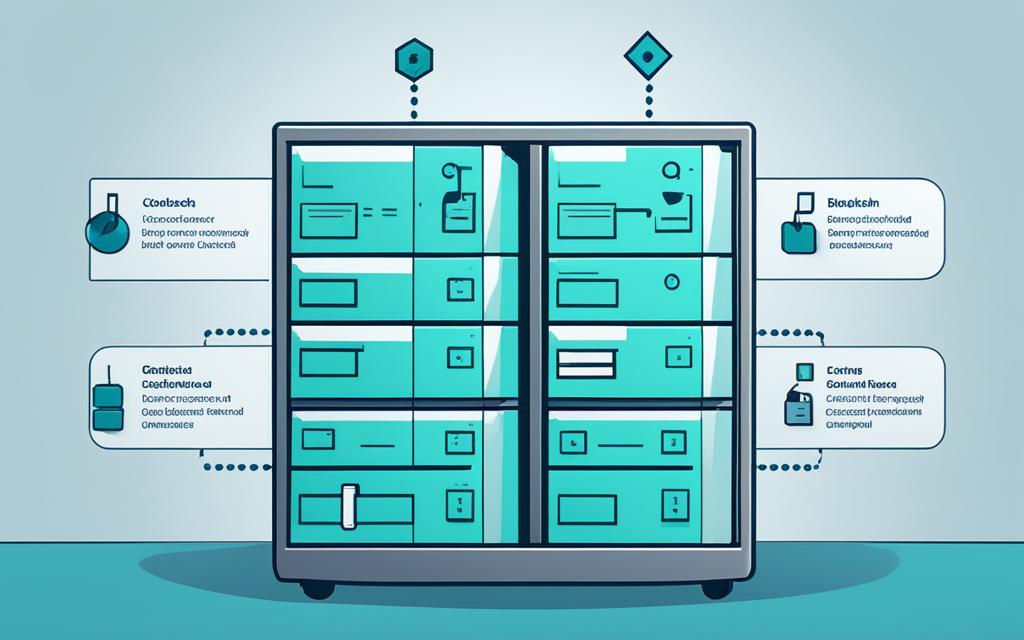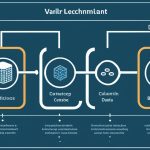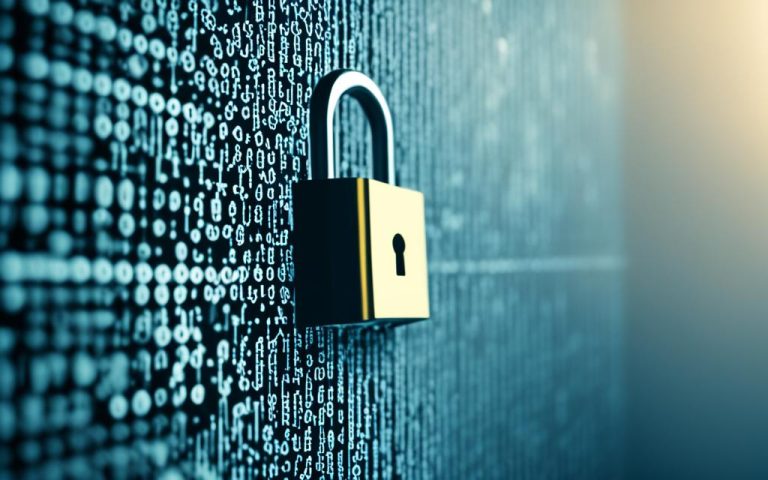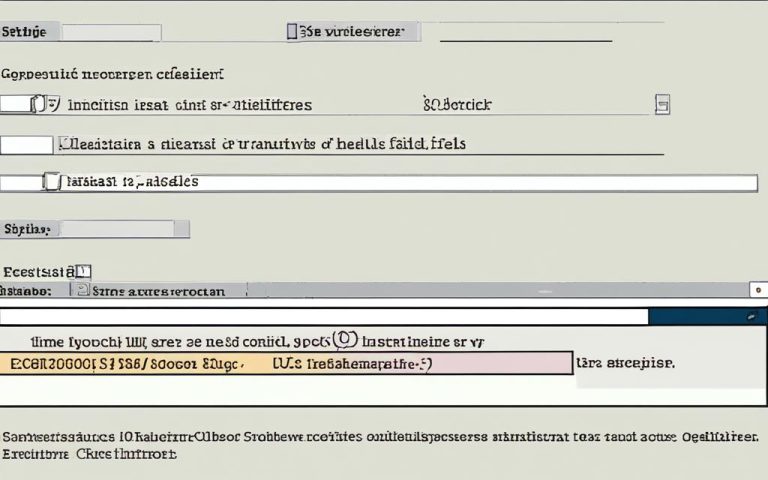Blockchain and conventional record-keeping are different in how they manage data. While both aim for data integrity and transparency, blockchain’s way of no central command stands out.
Conventional methods store data in central databases under one authority. This can lead to risks like data changes and hacking. Such methods are open to attacks, harming trust and data security.
Blockchain, however, uses many computers to keep and check the data. This way, security is stronger, stopping bad actors from changing info on *blockchain solutions*.
Blockchain’s openness also makes it trustworthy. Everyone in the network can see the data, ensuring transparency and responsibility. This removes the need to trust middlemen or central powers.
So, blockchain adds more trust and safety to keeping records. It uses decentralization and special coding to make data more secure and open. This makes blockchain a better choice compared to usual methods.
This picture shows how blockchain keeps data safe and open. It highlights blockchain’s role in protecting data integrity and transparency.
Understanding Traditional Database Systems
Traditional database systems are key for keeping records in various industries. They depend on a central authority for storing and managing data. Yet, this single control point brings challenges and weaknesses not found in blockchain technologies.
These systems mean one authority or server handles all the data. It can change, share, or secure the data as it sees fit. Though efficient, it carries risks of data being changed or accessed without permission.
One big worry with these systems is data tempering. If someone hacks the server, they can alter information secretly. This might lead to wrong decisions, damaged reputation, and even legal troubles.
Access to data also raises questions in traditional databases. Only certain people can see the data. But if it’s unclear who is making changes, it could lead to misuse or no accountability.
Using these databases, we often need middlemen for validating data. They make the process costlier and more complex. This can slow things down and increase the chance of mistakes or hold-ups.
But there’s another way: blockchain technology. It’s a system that shares data across many computers, removing the need for one control point. This method is both open and means there’s no central target for attacks.
Blockchain uses special security and agreement methods to keep data safe and unchanged. It allows for direct transactions without middlemen. Blockchain can’t be altered like traditional databases, making it safer from tampering.
Seeing how traditional databases can be limited helps us value blockchain’s benefits. It spreads out data storage, cuts the risk of alterations, improves data access, and gets rid of middlemen. Blockchain is changing how we keep records, offering fresh opportunities for different sectors.
Sources:
- https://coredevsltd.com/articles/blockchain-technology/
- https://www.theknowledgeacademy.com/blog/what-sets-blockchain-solutions-apart-from-conventional-record-keeping-solutions/
- https://medium.com/blockworks-group/is-blockchain-better-than-a-database-d518743bdafa
The Power of Decentralization in Blockchain
In the world of records, blockchain shines with its decentralization. Unlike one-place traditional databases, blockchain spreads data across many computers. This is called a distributed ledger.
Decentralization offers lots of benefits. It makes security and transparency better. Since the data isn’t in one spot, it’s hard for the system to fail or for someone to change the data. Blockchain uses special codes and group decisions to keep transactions safe from changes or tricks.
Also, decentralization makes things more efficient. It lets many people take part and make the system secure. Lots of people can check and approve transactions. This means you don’t need middlemen or one boss. This way of working together makes the network clear and fast.
Yet, running a decentralized system is complex. It needs good teamwork. Still, the pluses of decentralization are worth it. Decentralized networks don’t need everyone to trust each other to agree on the data. This means everyone can see the same data at the same time, not just their own part.
Decentralization also reduces big failures. By not depending too much on certain parts, it spreads out resources better. This makes the system work smoothly, stay stable, and less likely to break down completely.
More companies are moving to decentralized, blockchain ways. For example, Contura Energy uses blockchain to get better, save money, and be more open in what they do.
To see more on blockchain benefits and decentralization, check out this article. You can also learn more about decentralization in blockchain at this Amazon Web Services page and this CoreDefs Ltd. article.
Advantages of Blockchain Solutions
Blockchain has many benefits over old ways of keeping records. The best thing is how open it is. Anyone in the network can see the data. This clearness builds trust and cuts out the middleman. It lets people check information themselves.
Blockchain is also super secure. It uses fancy coding and rules to keep data safe and sound. Because information is spread out over many places, it’s hard to mess with. This makes blockchain really reliable and safe from failure.
On top of that, blockchain saves money. Since it skips over intermediaries, things get done faster and cheaper. This is great for all kinds of businesses, like banks and shipping companies. The savings and trust that blockchain brings is changing industries.
To sum up, blockchain’s perks are huge. Its clarity, safety, and reliability could change how businesses work. By using blockchain, we can make data more secure, business smoother, and the economy more trusted.
FAQ
What is the difference between blockchain solutions and conventional record-keeping methods?
Blockchain solutions use a network of computers. Conventional record-keeping depends on a central authority. Blockchain is more secure and transparent, making it less likely to be tampered with.
What are the risks associated with traditional database systems?
Traditional databases can be tampered with and are prone to unauthorized access. If the central system fails, everything collapses. They lack transparency, which makes them easy targets for hackers.
How does decentralization affect blockchain?
Blockchain’s heart is decentralization. Data gets shared across many computers in a distributed ledger. This means anyone can access data without middlemen, improving security and trust.
It stops one failure from breaking everything. Many people check transactions, making them secure.
What advantages do blockchain solutions offer?
Blockchain brings open, easy-to-access data. This builds trust and cuts out middlemen. It uses crypto techniques and consensus algorithms to fight off tampering.
It’s immune to single failures and cheaper by skipping intermediaries. This allows for trusted, efficient dealings.



















